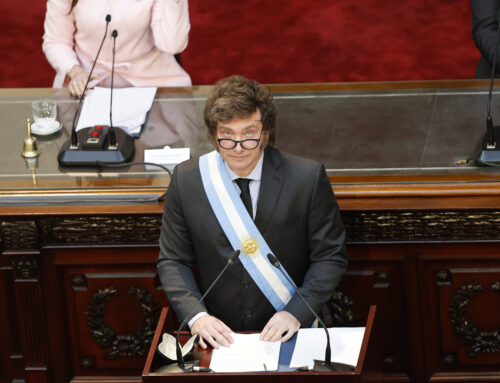President Javier Milei signed an emergency executive decree on Monday to enforce a new deal between Argentina and the International Monetary Fund (IMF), signaling that a staff-level agreement is near completion.
Executive Order Overriding Congress
Under Argentine law, Congress must approve any new IMF program. However, instead of sending a bill to lawmakers, as previous administrations did, Milei issued an executive order that will take effect unless both chambers of Congress reject it. If only one chamber approves it, the decree automatically becomes law.
The government justifies this approach by arguing that the loan will be used to pay off the central bank’s debt to the Treasury, ultimately reducing Argentina’s debt burden. Officials also emphasize that the country’s economic crisis warrants borrowing from the IMF via decree rather than seeking congressional approval.
IMF Deal Nearing Completion
While negotiations for the new program are still ongoing, the executive order sends a strong signal that talks are reaching their final stage. Economy Minister Luis Caputo recently stated that his team and the IMF staff have already agreed on a loan amount and key program details. However, the agreement still requires approval from the IMF’s executive board. Caputo expects the deal to be finalized by the end of April.
Argentina is the IMF’s largest debtor, and this new program would mark the country’s 23rd agreement with the international lender—the most by any nation.
Key to Lifting Capital Controls
The new IMF deal is crucial for Argentina’s ability to lift currency controls, which is essential to attract foreign investment.
When asked whether a Congressional rejection of the agreement could be seen as a negative signal by the IMF, the fund’s chief spokeswoman, Julie Kozack, stated that the matter is a local legal issue:
“Strong ownership and broad support are key to the program’s success. Here I want to emphasize, though, that securing congressional support is a decision of the authorities as legislated in Argentine domestic law,” she said in a recent press briefing.







Leave A Comment